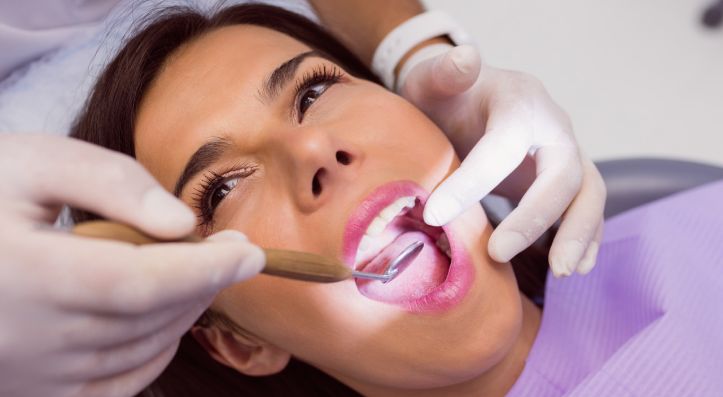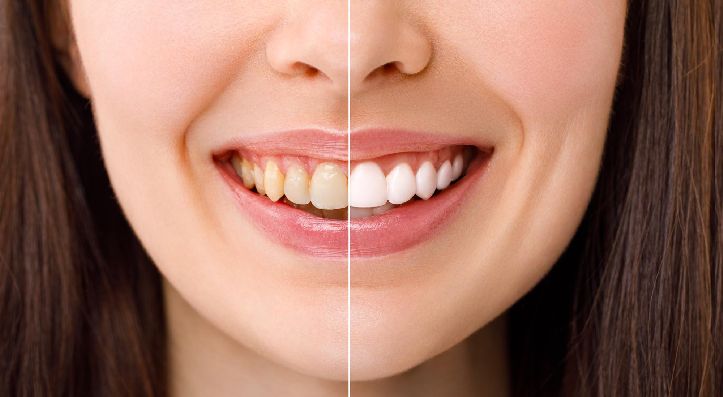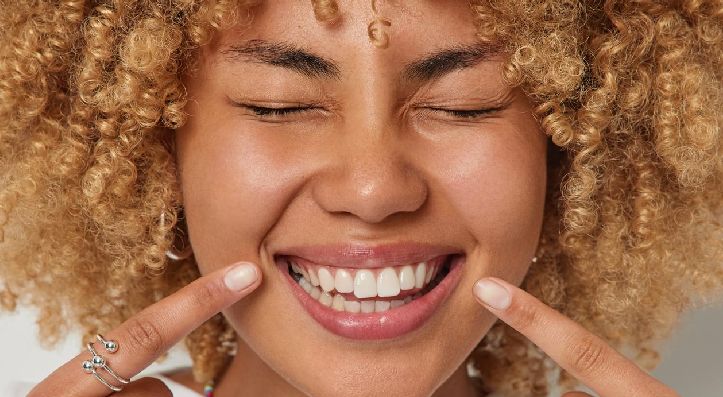Do you dream of having a radiant white smile that lights up the room? Many people strive for whiter teeth, which can significantly enhance their appearance and confidence. While numerous teeth-whitening products and treatments are available today, it’s essential to understand the factors that affect the whitening process and manage your expectations accordingly. In this article, we’ll delve into the ins and outs of teeth whitening and explore how long it typically takes to achieve that coveted pearly white smile.
Factors Affecting Teeth Whitening
Natural tooth color and genetics: Before embarking on a teeth whitening journey, it’s essential to consider each individual has a unique natural tooth color. Genetics and enamel thickness play a significant role in determining the shade of your teeth. Some naturally have whiter teeth, while others may have a slightly yellowish or off-white hue.
Lifestyle habits and dietary choices: Your lifestyle choices can impact the color of your teeth. Frequent consumption of staining substances such as coffee, tea, red wine, and tobacco can gradually darken your teeth over time. Additionally, poor dental hygiene practices can lead to the buildup of plaque and tartar, which can contribute to discoloration.
Dental hygiene practices: Maintaining good oral hygiene is crucial for preserving the whiteness of your teeth. Regular brushing, flossing, and dental check-ups help remove surface stains and prevent plaque accumulation, which can lead to discoloration.
Dental history and previous dental treatments: Certain dental treatments or conditions may impact the effectiveness of teeth whitening. For instance, teeth with extensive dental restorations, such as crowns or veneers, may not respond to whitening treatments in the same way as natural teeth.
Teeth Whitening Methods
Over-the-counter whitening products: A wide array of over-the-counter whitening products are available in the market. These products include whitening toothpaste, whitening strips, and whitening gels with trays. They are less potent than professional treatments and require consistent and prolonged use to achieve noticeable results.
Professional teeth whitening treatments: If you desire faster and more dramatic results, professional teeth whitening treatments performed by a dentist may be the ideal choice. These treatments can be done either in-office or using take-home bleaching kits prescribed by a dentist. Professional treatments often involve using higher concentrations of bleaching agents, ensuring more effective and efficient whitening.
Natural remedies and DIY methods: Some individuals prefer natural remedies or do-it-yourself (DIY) methods for teeth whitening. These include using baking soda, hydrogen peroxide, or activated charcoal. While these methods may show some improvement in tooth color, they are generally less reliable or scientifically proven than professional treatments.
Understanding the Whitening Process
The role of peroxide-based bleaching agents: Most teeth whitening products and treatments utilize peroxide-based bleaching agents, such as hydrogen or carbamide peroxide. These agents penetrate the enamel and dentin of the teeth, breaking down the molecular bonds of the stains and oxidizing them, resulting in a lighter appearance.
Chemical reactions and breaking down of stains: The whitening process involves chemical reactions that take time to occur. The peroxide-based bleaching agents break down the stubborn stains on the surface and within the tooth structure. However, it’s important to note that the effectiveness of the whitening process can vary based on the concentration of the bleaching agent and the duration of contact with the teeth.
Time required for the whitening process to take effect: The time it takes to see noticeable results from teeth whitening can vary depending on various factors, including the method used and the initial shade of your teeth. While some people may experience immediate whitening effects, it is a gradual process that takes time and consistency for most individuals.
Average Duration for Teeth Whitening
Results with over-the-counter products: Over-the-counter whitening products, such as whitening toothpaste or strips, often require several weeks or months of regular use before noticeable results are achieved. These products usually contain lower concentrations of bleaching agents, and the contact time with the teeth is limited. Therefore, the whitening process is typically slower compared to professional treatments.
Speed and effectiveness of professional treatments: Professional teeth whitening treatments yield faster and more dramatic results. In-office bleaching sessions can typically provide visible whitening effects in just one visit, with an average treatment time of about 60 to 90 minutes. Take-home bleaching kits prescribed by a dentist usually require daily use for a week or two to achieve significant whitening.
Factors influencing the timeline of teeth whitening: Several factors can affect how long it takes to get your teeth white. These include the severity of discoloration, the method of whitening chosen, the concentration of the bleaching agent, and your compliance with the instructions provided. Following the recommended treatment duration and guidelines is essential to achieve optimal results.
Managing Expectations
A realistic timeframe for noticeable results: Having realistic expectations regarding teeth whitening is essential. While some individuals may notice a difference after a few days, it’s more common for the whitening process to take several weeks or months. Patience is critical, as gradual and consistent whitening yields longer-lasting results.
Gradual nature of teeth whitening: Teeth whitening is not an instantaneous transformation. It’s a gradual process that involves breaking down and removing stains over time. This incremental approach helps maintain the health and integrity of your teeth while achieving a natural-looking whiteness.
Patience and consistency in following instructions: To maximize the effectiveness of teeth whitening treatments, it’s crucial to follow the instructions provided with the product or treatment. This includes using the consequences for the recommended duration, adhering to the application frequency, and avoiding habits or substances that can cause staining.
Precautions and Potential Side Effects
Risks associated with improper use of whitening products: It’s essential to exercise caution when using teeth whitening products to avoid potential risks. Using whitening products excessively or for longer durations than recommended can lead to tooth sensitivity, gum irritation, or even damage to the tooth enamel. Always read and follow the instructions carefully, and consult a dentist if you have any concerns.
Sensitivity and gum irritation: Teeth sensitivity is a common side effect of teeth whitening, especially with higher concentrations of bleaching agents. If you experience sensitivity or gum irritation during or after whitening, you must take a break and consult your dentist. They can recommend desensitizing products or adjust the treatment plan to minimize discomfort.
Consulting a dentist before whitening: Before embarking on any teeth whitening journey, it’s advisable to consult with a dentist. They can assess your oral health, determine the underlying cause of tooth discoloration, and recommend the most suitable whitening method for your specific needs.
Maintaining Teeth Whitening Results
Tips for prolonging the effects of teeth whitening: After achieving your desired level of teeth whitening, it’s crucial to maintain the results. Here are some tips to help prolong the effects:
- Practice good oral hygiene: Brush your teeth twice daily, floss daily, and rinse with an antiseptic mouthwash. Maintaining a clean and healthy mouth helps prevent the buildup of stains.
- Avoid staining substances: Limit your consumption of coffee, tea, red wine, and other foods and beverages that can stain your teeth. If you indulge, rinse your mouth with water afterward or brush your teeth to minimize the impact.
- Quit tobacco use: Smoking or using tobacco products stains your teeth and poses significant oral health risks. Quitting tobacco benefits your overall health and helps maintain a bright smile.
- Regular dental check-ups: Schedule regular dental visits for professional cleanings and check-ups. Your dentist can monitor the condition of your teeth and provide touch-up treatments if needed.
Conclusion
Teeth whitening is a popular cosmetic procedure that can enhance your smile and confidence. While the duration of teeth whitening varies depending on individual factors and the method chosen, it’s essential to set realistic expectations and be patient. Whether you opt for over-the-counter products or professional treatments, following instructions, maintaining good oral hygiene, and seeking professional guidance is vital in achieving and maintaining a white smile. Remember, the journey to whiter teeth is gradual, but the results are well worth it.
So, embrace the journey and take the necessary steps to achieve that radiant, pearly white smile you’ve always desired!
Additional Reading:
The Role of Diet in Teeth Whitening: Foods and Beverages that Promote a Whiter Smile
Regarding teeth whitening, your diet can contribute to discoloration or help promote a whiter smile. Certain foods and beverages have staining properties that can impact the brightness of your teeth. Common culprits are coffee, tea, red wine, and dark-colored fruits like berries. On the other hand, incorporating teeth-friendly foods such as crunchy fruits and vegetables (like apples and celery) that stimulate saliva production and help scrub away surface stains can aid in maintaining a brighter smile. Additionally, drinking plenty of water throughout the day can rinse away food particles and minimize the risk of staining.
Teeth Whitening Myths Debunked: Unveiling Common Misconceptions About the Whitening Process
Teeth whitening is a popular topic, but it’s also surrounded by numerous myths and misconceptions. There are many misunderstandings about the process, from using lemon juice as a DIY whitening solution to believing that teeth whitening damages enamel. In this article, we debunk common teeth-whitening myths, provide accurate information, and offer insights based on scientific evidence. By dispelling these myths, we aim to provide readers with precise knowledge and empower them to make informed decisions about their teeth-whitening journey.
Prescription Medications and Teeth Discoloration: Understanding the Connection and Potential Solutions
Did you know that certain prescription medications can cause teeth discoloration as a side effect? Tetracycline, antihistamines, and certain antipsychotics have been associated with tooth staining. This article explores the connection between prescription medications and teeth discoloration, discusses common culprits, and provides potential solutions. Consulting with your healthcare provider and dentist can help identify alternative medicines or explore whitening options to mitigate the effects of medication-related teeth discoloration.
Teeth Whitening for Special Occasions: How to Achieve a Bright Smile in a Short Timeframe
Are you preparing for a special occasion and want a dazzling smile to complement your outfit? Whether it’s a wedding, graduation, or an important event, there are teeth whitening options that can deliver quick results. From in-office professional treatments to at-home whitening kits prescribed by dentists, we discuss accelerated teeth whitening methods to help you achieve noticeable results in a shorter timeframe. We provide tips, precautions, and recommendations to ensure a bright and confident smile for your special day.
Beyond Aesthetics: The Psychological Impact of Whiter Teeth on Self-Confidence and Well-Being
Teeth whitening is not just about aesthetics; it can profoundly impact one’s self-confidence and overall well-being. This article delves into the psychological benefits of a whiter smile. Increased self-esteem, improved social interactions, and a positive self-image are just a few of the outcomes reported by individuals who have undergone teeth whitening. We explore the psychological factors at play and provide insights into how teeth whitening can enhance your appearance and emotional well-being.
Teeth Whitening for Aging Smiles: Rejuvenating Your Appearance with a Youthful, White Smile
Our teeth naturally undergo changes as we age, including discoloration and wear. However, teeth whitening can be valuable in rejuvenating your smile and helping you look younger. In this article, we discuss the effects of
aging on tooth color, such as the gradual yellowing or darkening of enamel. We explore how teeth whitening can effectively counteract these effects and provide tailored tips and recommendations for individuals with aging smiles. From professional treatments to at-home whitening options, we guide you toward a more youthful and vibrant smile.
Teeth Whitening for Smokers: Addressing Stains and Discoloration Caused by Tobacco Use
Smoking tobacco is not only detrimental to your overall health but also has a significant impact on the color of your teeth. Nicotine and tar present in tobacco can cause stubborn stains and discoloration. In this article, we delve into the specific challenges smokers face regarding teeth whitening and discuss practical strategies to address the stains caused by tobacco use. We provide insights into professional treatments, oral hygiene practices, and lifestyle changes that can help smokers regain a brighter smile.
The Cost of Teeth Whitening: Exploring Different Methods and Budget-Friendly Options
Teeth whitening options can vary in cost, and it’s essential to consider your budget when choosing a whitening method. This article provides an overview of the teeth whitening methods available, from over-the-counter products to professional treatments, and discusses their associated costs. We also highlight budget-friendly options and home remedies that can be effective for those seeking more affordable alternatives. By understanding the cost considerations, readers can make informed decisions that align with their financial capabilities and desired outcomes.
FAQs
Are teeth whitening safe?
Teeth whitening, when done correctly and under professional guidance, is considered safe. However, improper whitening products or excessive use of high-bleaching agents can lead to tooth sensitivity and gum irritation. Following the instructions and consulting a dentist if you have concerns is essential.
Can I whiten my teeth if I have dental restorations?
Teeth whitening treatments primarily target natural tooth enamel and may not significantly affect dental restorations such as crowns or veneers. If you have dental restorations, it’s best to consult with your dentist to discuss alternative options for improving the appearance of your smile.
How long do the results of teeth whitening last?
The longevity of teeth whitening results varies from person to person and depends on various factors such as lifestyle habits, oral hygiene practices, and dietary choices. With proper care and maintenance, teeth whitening results can last anywhere from several months to a couple of years. Regular dental check-ups and touch-up treatments can extend the duration of the results.
Can I whiten my teeth if I have sensitive teeth?
If you have sensitive teeth, it’s essential to approach teeth whitening cautiously. Some whitening products or treatments may exacerbate tooth sensitivity. However, desensitizing products are available, and your dentist can recommend appropriate solutions to minimize discomfort during the whitening process.
Are natural teeth whitening remedies effective?
Natural teeth whitening remedies, such as baking soda or hydrogen peroxide, may improve tooth color. However, their effectiveness can vary, and these methods are generally less reliable or scientifically proven than professional treatments. It’s best to consult with a dentist for guidance on safe and effective whitening options.
Can I whiten my teeth if I have braces?
It’s not recommended to undergo teeth whitening treatments while wearing braces. The brackets and wires of braces can obstruct the even application of whitening agents, resulting in uneven whitening and potential damage to the braces. It’s best to wait until after your braces are removed to pursue teeth whitening.
Can I whiten my teeth if I am pregnant or breastfeeding?
While there is limited research on the effects of teeth whitening during pregnancy or breastfeeding, it’s generally advisable to postpone any non-essential dental treatments during this period. The safety of bleaching agents for the developing fetus or breastfeeding infants has not been established, so it’s best to consult your healthcare provider and dentist for personalized advice.
How can I maintain the results of teeth whitening?
To maintain teeth whitening results, it’s essential to practice good oral hygiene by brushing your teeth twice a day, flossing daily, and using an antiseptic mouthwash. Additionally, avoiding staining substances such as coffee, tea, and tobacco, scheduling regular dental check-ups, and following any specific instructions provided by your dentist can help prolong the effects of teeth whitening.
Can I undergo teeth whitening if I have sensitive gums?
If you have sensitive gums, it’s essential to exercise caution when considering teeth whitening. Some whitening products or treatments may cause gum irritation. Consult with your dentist to evaluate the condition and determine the most suitable approach for your situation.
About The Author

Alison Sowle is the typical tv guru. With a social media evangelist background, she knows how to get her message out there. However, she's also an introvert at heart and loves nothing more than writing for hours on end. She's a passionate creator who takes great joy in learning about new cultures - especially when it comes to beer!



